Tsongas Industrial History Center turns 25
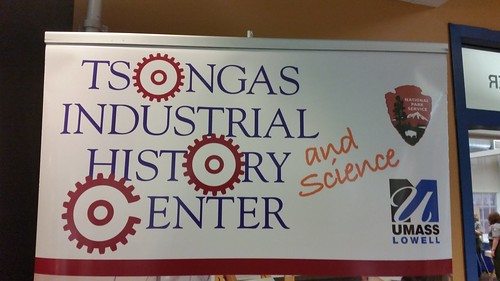
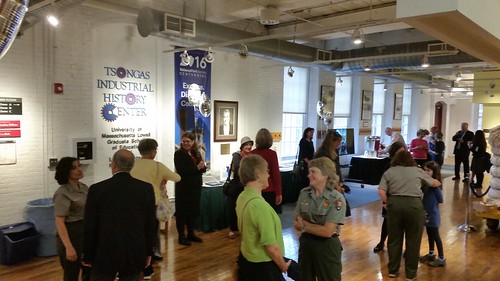
The Tsongas Industrial History Center celebrated its 25th anniversary last night with a ceremony and reception at its Boott Mill home. The Center’s director, Sheila Kirschbaum, who served as master of ceremonies, opened the program by reminding us of Paul Tsongas’s determination to recognize Lowell’s place in American history. Lowell City Councilor Bill Samaras, who presented the center with a citation from the city of Lowell, stressed the value of Lowell’s diversity, saying that a student educated in the Lowell public schools, Middlesex Community College, and UMass Lowell “can fit in anywhere in the world.” UMass Lowell Provost Michael Vayda cited the Tsongas Industrial History Center was a “unique enterprise” that highlights the importance of Lowell’s legacy and place in the Industrial Revolution and is a reminder that Lowell is a microcosm of the great American melting pot.
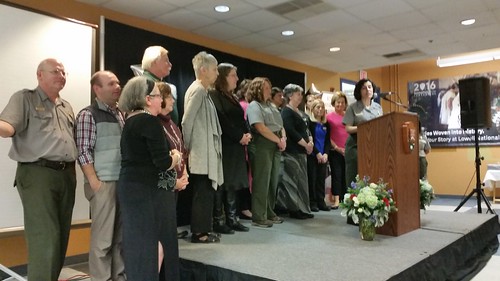
Superintendent Celeste Bernardo introduces staff of Tsongas Industrial History Center
Lowell National Historical Park Superintendent Celeste Bernardo stressed the importance of the UMass Lowell partnership and the educational expertise it brought to the center. She said National Park personnel are great at giving tours, but that the infusion of expertise from UMass Lowell has made the Tsongas Industrial History Center “one of the National Park Service’s premiere educational centers.” The UMass Lowell partnership makes the center about more than just history; it emphasizes the humanities and STEM (science, technology, engineering, and mathematics) education. Celeste gave great credit to Sandy Walters, her 1980s predecessor as Lowell Park Superintendent, who was “a bundle of energy who made things happen.” It was Walters who had the vision for what the center could become and who precipitated the partnership with the university.
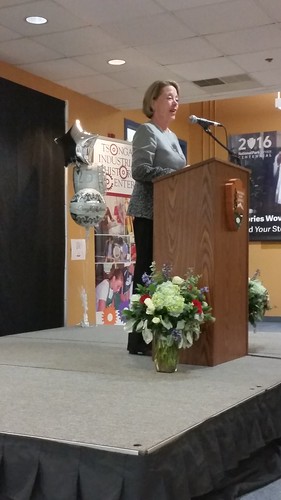
Congresswoman Niki Tsongas
The final speaker was Congresswoman Niki Tsongas, who said that when she attended the opening of the center, she had no idea that 25 years later she would return as its representative in Congress. Niki said that for all the good things that the Park does for Lowell, it came into existence not to benefit the city, but because of Lowell’s “singular place in US history” and “because of the innovation that started here and radiated out across America. The Lowell Park was also an innovation within the National Park system which had been focused almost exclusively on great natural places and important battlefields. She closed by commending Lowell National Historical Park and the city of Lowell for continuing to be leaders in innovation.
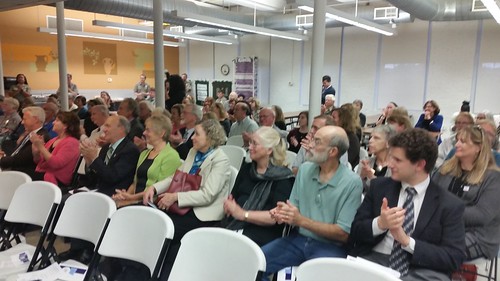
According to its website, The Tsongas Industrial History Center is a partnership between the University of Massachusetts Lowell Graduate School of Education and Lowell National Historical Park. Its mission is “to inspire connections with and understandings about America’s industrial past, present, and future through experiential learning using Lowell’s unique resources.”
Congratulations to the TIHC – educating thousands of students and teachers each year. Good fortune to have Sheila Kirschbaum at the helm– she is bright, dedicated, innovative and professional.